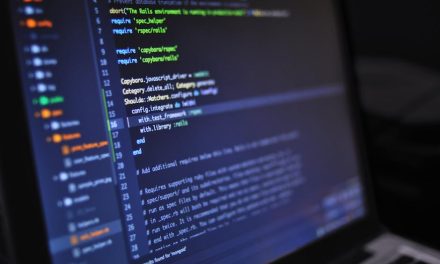Table of Contents
Achieving Harmony in HR: Embracing AI for a Human Touch.
Introduction
Introduction:
Balancing Automation and Humanity: Leveraging AI in HR
The integration of artificial intelligence (AI) in various industries has revolutionized the way businesses operate. Human resources (HR) departments, in particular, have started leveraging AI to streamline processes, enhance efficiency, and improve decision-making. However, it is crucial to strike a balance between automation and maintaining the human touch in HR practices. This article explores the concept of balancing automation and humanity in HR and highlights the benefits and challenges of leveraging AI in this field.
The Role of AI in Streamlining HR Processes

The Role of AI in Streamlining HR Processes
In today’s fast-paced and technology-driven world, businesses are constantly looking for ways to streamline their operations and improve efficiency. One area where this is particularly important is in human resources (HR), where managing a large workforce and handling various administrative tasks can be time-consuming and resource-intensive. This is where artificial intelligence (AI) comes into play, offering the potential to revolutionize HR processes and make them more efficient.
One of the key roles of AI in HR is automating repetitive and time-consuming tasks. For example, AI-powered chatbots can handle routine employee inquiries, such as questions about benefits or vacation policies, freeing up HR professionals to focus on more strategic and value-added activities. These chatbots can be programmed to provide accurate and consistent responses, ensuring that employees receive the information they need in a timely manner.
AI can also play a crucial role in the recruitment and selection process. With the help of AI algorithms, HR professionals can sift through large volumes of resumes and identify the most qualified candidates for a particular job. This not only saves time but also improves the quality of the hiring process by reducing bias and increasing objectivity. AI can analyze resumes and job descriptions to identify the best matches, taking into account factors such as skills, experience, and qualifications.
Furthermore, AI can assist in the onboarding process by providing personalized training and development plans for new employees. By analyzing data on an individual’s skills and competencies, AI can recommend specific training programs or learning resources that are tailored to their needs. This not only helps new employees get up to speed quickly but also ensures that they receive the necessary support to succeed in their roles.
Another area where AI can streamline HR processes is in performance management. Traditional performance reviews can be time-consuming and subjective, often relying on the memory and biases of managers. AI can provide real-time feedback and performance metrics, allowing employees to track their progress and identify areas for improvement. This data-driven approach can help HR professionals identify high-performing employees and provide targeted coaching and development opportunities.
However, while AI offers numerous benefits in streamlining HR processes, it is important to strike a balance between automation and human touch. While AI can handle routine tasks and provide data-driven insights, it cannot replace the human element in HR. Building relationships, understanding emotions, and providing empathy are all essential aspects of HR that require human intervention.
Moreover, it is crucial to address concerns about the ethical implications of AI in HR. For example, biases in AI algorithms can perpetuate existing inequalities and discrimination. HR professionals need to ensure that AI systems are designed and trained in a way that is fair and unbiased, taking into account factors such as gender, race, and age.
In conclusion, AI has the potential to revolutionize HR processes by automating repetitive tasks, improving recruitment and selection, enhancing onboarding and training, and streamlining performance management. However, it is important to strike a balance between automation and human touch, and to address ethical concerns associated with AI in HR. By leveraging AI effectively, businesses can streamline their HR processes, improve efficiency, and ultimately create a more engaged and productive workforce.
Enhancing Employee Experience through AI-driven HR Solutions
In today’s fast-paced and technology-driven world, businesses are constantly seeking ways to streamline their operations and improve efficiency. One area where this is particularly evident is in the field of human resources (HR). Traditionally, HR departments have been responsible for managing a wide range of tasks, from recruitment and onboarding to performance management and employee engagement. However, with the advent of artificial intelligence (AI), HR professionals now have access to a whole new set of tools and solutions that can help them enhance the employee experience.
AI-driven HR solutions offer a range of benefits that can significantly improve the way HR departments operate. One of the key advantages is the ability to automate repetitive and time-consuming tasks. For example, AI-powered chatbots can handle routine employee inquiries, such as leave requests or benefits information, freeing up HR professionals to focus on more strategic initiatives. This not only saves time but also reduces the risk of errors and ensures a consistent and efficient employee experience.
Another way AI can enhance the employee experience is through personalized learning and development opportunities. By analyzing employee data, AI algorithms can identify skill gaps and recommend relevant training programs or courses. This not only helps employees acquire new skills but also demonstrates the organization’s commitment to their professional growth. Furthermore, AI can provide real-time feedback and coaching, allowing employees to continuously improve their performance and reach their full potential.
AI can also play a crucial role in improving the recruitment and selection process. Traditional methods of screening resumes and conducting interviews can be time-consuming and subjective. AI-powered algorithms, on the other hand, can quickly analyze large volumes of resumes, identify the most qualified candidates, and even predict their likelihood of success in the role. This not only saves time but also ensures a fair and unbiased selection process, leading to better hiring decisions and ultimately, a more diverse and inclusive workforce.
However, while AI-driven HR solutions offer numerous benefits, it is important to strike the right balance between automation and human touch. While AI can handle routine tasks and provide data-driven insights, it cannot replace the human element in HR. Building strong relationships with employees, understanding their unique needs and concerns, and providing empathetic support are all essential aspects of HR that require human intervention.
Moreover, it is crucial to address any concerns or fears that employees may have about the use of AI in HR. Many employees worry that AI will replace their jobs or invade their privacy. It is important for HR professionals to communicate transparently about the purpose and benefits of AI, and to involve employees in the decision-making process. By involving employees in the implementation and design of AI-driven HR solutions, organizations can ensure that these technologies are used in a way that aligns with their values and respects employee rights.
In conclusion, AI-driven HR solutions have the potential to significantly enhance the employee experience. By automating routine tasks, providing personalized learning opportunities, and improving the recruitment process, AI can help HR professionals focus on strategic initiatives and create a more efficient and engaging workplace. However, it is important to strike the right balance between automation and human touch, and to address any concerns or fears that employees may have. By leveraging AI in a thoughtful and responsible manner, organizations can create a harmonious blend of automation and humanity in HR.
Ethical Considerations in Implementing AI in HR Practices
Ethical Considerations in Implementing AI in HR Practices
As artificial intelligence (AI) continues to advance, it is becoming increasingly integrated into various aspects of our lives, including human resources (HR) practices. While AI has the potential to streamline and enhance HR processes, it also raises important ethical considerations that organizations must carefully navigate.
One of the primary ethical concerns surrounding the implementation of AI in HR is the potential for bias. AI systems are only as unbiased as the data they are trained on, and if the data used to train these systems is biased, it can perpetuate and even amplify existing biases. This is particularly concerning in HR, where decisions about hiring, promotions, and performance evaluations can have significant impacts on individuals’ lives and careers.
To address this concern, organizations must ensure that the data used to train AI systems is diverse, representative, and free from bias. This requires careful consideration of the sources of data and ongoing monitoring and evaluation of the AI system’s performance. Additionally, organizations should establish clear guidelines and protocols for addressing bias in AI systems and provide training to HR professionals to help them understand and mitigate bias in decision-making.
Another ethical consideration in implementing AI in HR is the potential for privacy violations. AI systems often rely on large amounts of personal data to make predictions and recommendations. This raises concerns about the security and confidentiality of this data, as well as the potential for misuse or unauthorized access.
To address these concerns, organizations must prioritize data privacy and security when implementing AI in HR. This includes implementing robust data protection measures, such as encryption and access controls, and ensuring compliance with relevant data protection regulations. Organizations should also be transparent with employees about the types of data collected, how it will be used, and the measures in place to protect it.
A related ethical consideration is the potential for AI to erode trust and human connection in HR practices. While AI can automate many routine tasks and improve efficiency, it cannot replace the human touch and empathy that is often crucial in HR interactions. Employees may feel alienated or devalued if their interactions with HR are solely through AI systems, leading to a breakdown in trust and engagement.
To maintain a balance between automation and humanity, organizations should carefully consider which HR tasks are appropriate for AI and which require human intervention. This may involve using AI for data analysis and decision support, while reserving more personal interactions, such as performance feedback or disciplinary actions, for human HR professionals. Organizations should also invest in training HR professionals to effectively leverage AI tools and ensure that employees understand the role of AI in HR processes.
Finally, organizations must consider the potential impact of AI on job displacement and inequality. As AI systems become more sophisticated, there is a concern that they may replace certain HR roles, leading to job losses. This can have significant social and economic implications, particularly for vulnerable populations.
To mitigate these concerns, organizations should proactively plan for the impact of AI on the workforce. This may involve reskilling and upskilling HR professionals to adapt to new roles and responsibilities, as well as providing support and resources for employees who may be affected by job displacement. Additionally, organizations should consider the potential for AI to exacerbate existing inequalities and take steps to ensure that AI systems are designed and implemented in a way that promotes fairness and equal opportunities.
In conclusion, while AI has the potential to revolutionize HR practices, organizations must carefully consider the ethical implications of its implementation. By addressing concerns related to bias, privacy, trust, and inequality, organizations can leverage AI in a way that enhances HR processes while maintaining the human connection and values that are essential in HR practices.
Striking the Right Balance: Combining Automation and Human Touch in HR
Balancing Automation and Humanity: Leveraging AI in HR
In today’s fast-paced and technology-driven world, the role of artificial intelligence (AI) in various industries is becoming increasingly prominent. Human resources (HR) is no exception, as organizations are leveraging AI to streamline their HR processes and improve efficiency. However, there is a delicate balance that needs to be struck between automation and the human touch in HR.
Automation has undoubtedly revolutionized HR practices, making them more efficient and cost-effective. AI-powered tools can handle repetitive and time-consuming tasks such as resume screening, candidate sourcing, and even initial interviews. This allows HR professionals to focus on more strategic and value-added activities, such as talent development and employee engagement. By automating these routine tasks, HR departments can save valuable time and resources, enabling them to be more productive and responsive to the needs of the organization.
However, while automation brings undeniable benefits, it is crucial not to overlook the importance of the human touch in HR. HR is fundamentally about people, and the ability to connect and empathize with employees is a critical aspect of the profession. AI may be able to analyze data and make predictions, but it cannot replicate the emotional intelligence and intuition that humans possess. Employees often seek human interaction and support when facing challenges or seeking guidance, and it is essential for HR professionals to be there for them.
Striking the right balance between automation and the human touch in HR requires a thoughtful approach. One way to achieve this is by using AI as a tool to augment human capabilities rather than replace them. For example, AI can assist in identifying potential candidates for a job opening, but the final decision should still be made by a human HR professional who can assess cultural fit and soft skills. By combining the analytical power of AI with human judgment, organizations can make more informed and well-rounded decisions.
Another aspect to consider is the ethical implications of AI in HR. AI algorithms are only as good as the data they are trained on, and if the data is biased or flawed, it can lead to discriminatory outcomes. HR professionals must ensure that AI systems are designed and trained in a way that promotes fairness and inclusivity. Regular monitoring and auditing of AI systems can help identify and rectify any biases that may arise.
Furthermore, HR professionals should actively engage with employees to understand their concerns and address any fears or misconceptions they may have about AI. Open and transparent communication is key to building trust and ensuring that employees feel comfortable with the use of AI in HR processes. By involving employees in the decision-making process and providing opportunities for feedback, organizations can create a culture of collaboration and inclusivity.
In conclusion, leveraging AI in HR can bring numerous benefits, but it is essential to strike the right balance between automation and the human touch. By using AI as a tool to augment human capabilities, organizations can improve efficiency while still maintaining the personal connection and empathy that is crucial in HR. Ethical considerations and open communication are also vital to ensure that AI is used in a fair and inclusive manner. Ultimately, finding the right balance between automation and humanity in HR will enable organizations to unlock the full potential of AI while still prioritizing the needs and well-being of their employees.
Q&A
1. How can AI be leveraged in HR?
AI can be leveraged in HR to automate repetitive tasks, streamline recruitment processes, analyze employee data, and provide personalized employee experiences.
2. What are the benefits of using AI in HR?
Using AI in HR can lead to increased efficiency, reduced human error, improved decision-making, enhanced employee engagement, and cost savings.
3. What are the potential challenges of implementing AI in HR?
Challenges of implementing AI in HR include data privacy concerns, potential bias in algorithms, resistance from employees, and the need for continuous monitoring and updating of AI systems.
4. How can organizations balance automation and humanity in HR?
Organizations can balance automation and humanity in HR by ensuring that AI is used to augment human capabilities rather than replace them, providing training and support for employees to adapt to AI technologies, and maintaining a human touch in employee interactions.
Conclusion
In conclusion, balancing automation and humanity is crucial when leveraging AI in HR. While AI can streamline processes and improve efficiency, it is important to maintain a human touch in order to ensure fairness, empathy, and ethical decision-making. By combining the strengths of AI technology with human judgment and empathy, organizations can create a more effective and inclusive HR system that benefits both employees and the overall business.




